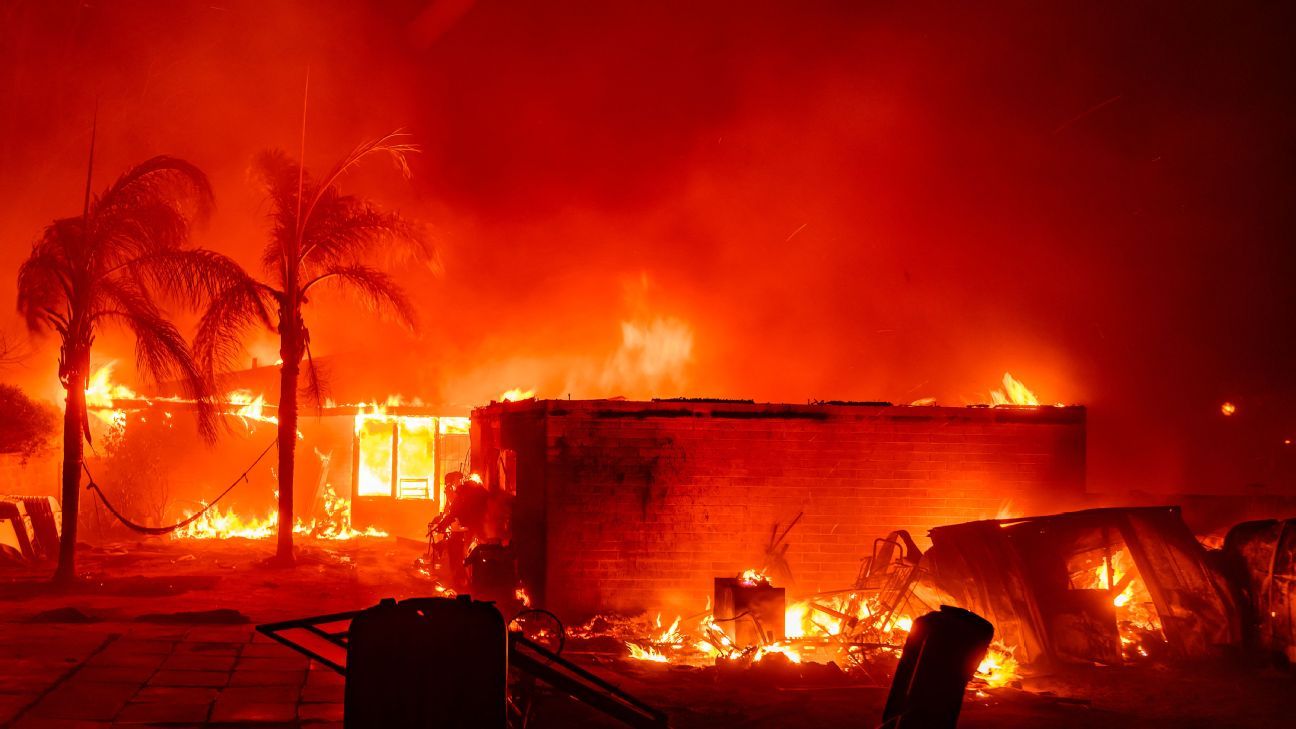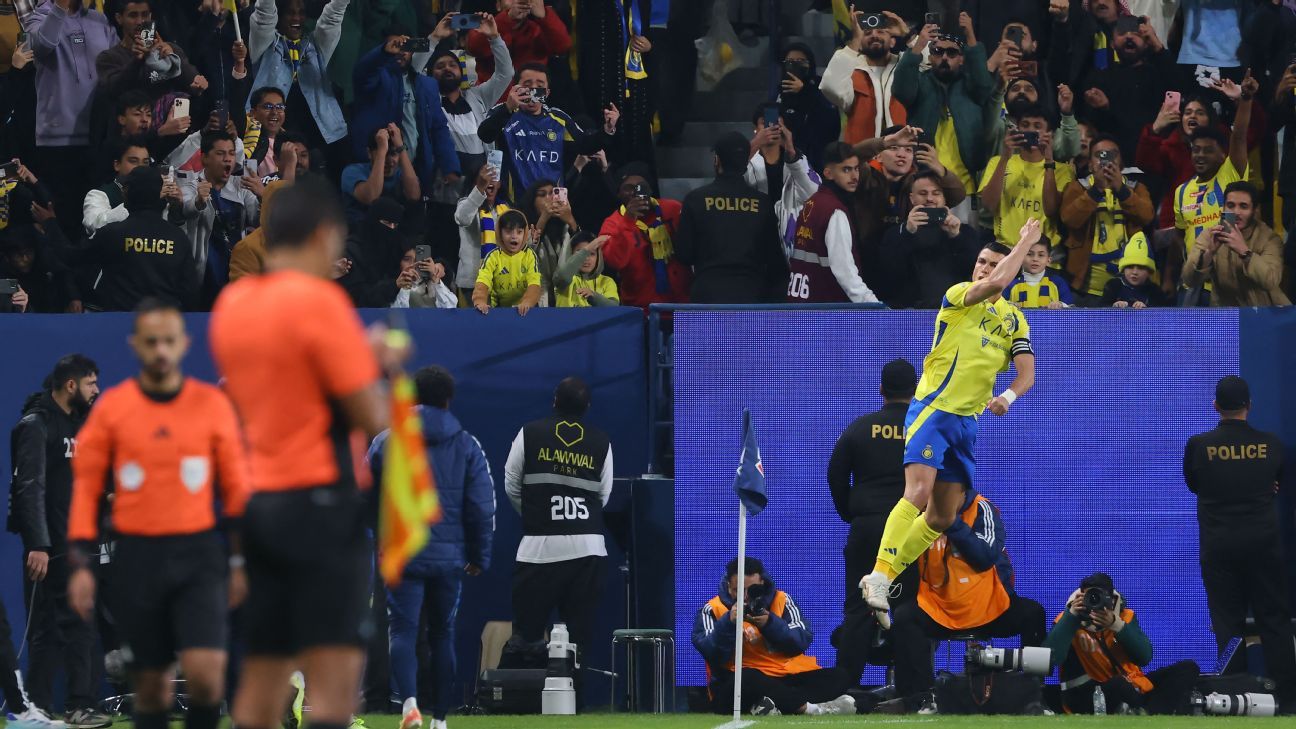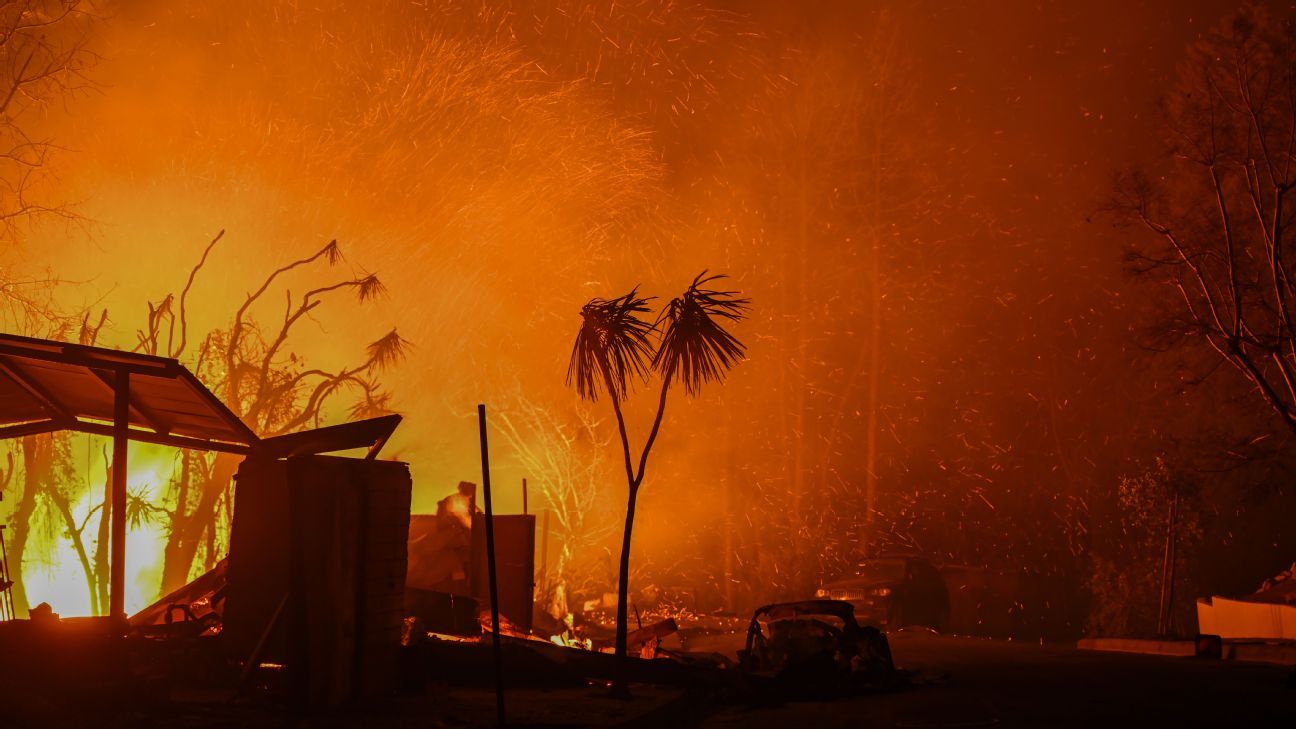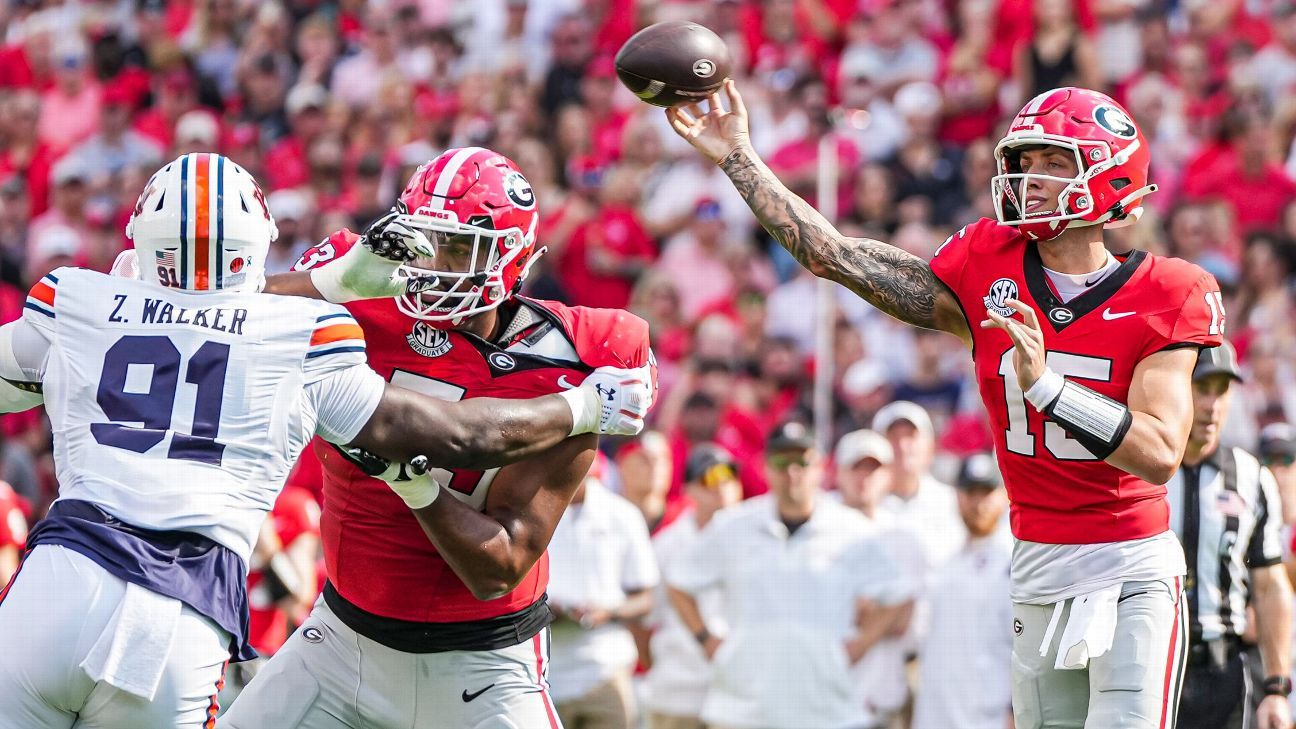LOS ANGELES — As wildfires continue to devastate several areas across Los Angeles, causing thousands to evacuate and impacting air quality, the NFL said it is monitoring the situation’s potential impact on Monday night’s wild-card playoff game between the Minnesota Vikings and Los Angeles Rams at SoFi Stadium and has a contingency plan that involves moving the game to Arizona should the need arise.
Three major blazes were burning in the Los Angeles metropolitan area Wednesday, from the Pacific Coast inland to Pasadena, home of the famed Rose Parade. At least 70,000 people were ordered to evacuate — a number that kept changing because evacuation orders were continually being issued, officials said.
In a statement Wednesday evening, the NFL said it continues to prepare for the game to be played at SoFi Stadium, but if it had to be moved, it would take place Monday night at State Farm Stadium in Glendale, Arizona, the home of the Arizona Cardinals.
“As with all games, there are contingency plans in the event a change in location is needed,” the league said in its statement.
In 2003, the league moved a Monday night regular-season game between the Miami Dolphins and San Diego Chargers to Sun Devil Stadium in Tempe, Arizona, due to wildfires.
The Rams, who had a scheduled off day Wednesday and are slated to resume practice Thursday, also are monitoring the situation, a team official said.
The Rams said no players or staff members had been affected by the fires. The team is headquartered in Woodland Hills, a neighborhood located about 13 miles north of fire-ravaged Pacific Palisades but separated by the Santa Monica Mountains.
“Our thoughts and prayers are with everyone affected by the fires,” Rams star receiver Cooper Kupp wrote on social media. “Thank you to the firefighters, first responders, and everyone else doing their best in unfathomable circumstances.”
The Los Angeles Chargers, who will visit the Texans on Saturday in a wild-card playoff game in Houston, altered their practice schedule Wednesday to limit players’ time outdoors, a team official said.
The air quality index in the area varied Wednesday from 150 to well above 300, depending on specific locations, with smoke and ash blanketing the region. A rating of 150 is considered “very unhealthy,” according to the system used to measure air pollution. The air quality in Inglewood, California — where SoFi Stadium is located — was 281 Wednesday afternoon.
Chargers coach Jim Harbaugh had the offensive and defensive units practice separately to limit their time on the field. Still, quarterback Justin Herbert and the rest of the quarterbacks were throwing passes to coaches during the defensive portion of practice. Chargers owner Dean Spanos, who typically isn’t out on the field at practice, was there watching with general manager Joe Hortiz during the defensive period open to media.
The air quality index at the team’s facility in El Segundo ranged from 170 to 200.
“We’re trying to keep everybody safe and healthy as much as possible and also at the same time get our preparation done for the game,” defensive coordinator Jesse Minter said.
Wide receivers coach Sanjay Lal lives in Calabasas, which is one of the areas affected by the wildfires. Offensive coordinator Greg Roman said Lal had “an intense night” with his family dealing with power outages.
The Chargers announced they will provide $200,000 in targeted funding to the American Red Cross, LA Fire Department Foundation, Team Rubicon and pet rescue organizations sheltering animals displaced by the fires.
With thousands of firefighters already attacking the flames, the Los Angeles Fire Department put out a plea for off-duty firefighters to help.
At least five people have been killed in the fires, according to officials, with many others injured.
California’s wildfire season typically begins in June or July and runs through October, according to the Western Fire Chiefs Association, but January wildfires are not unprecedented. There was one in 2022 and 10 in 2021, according to Cal Fire.
The season is beginning earlier and ending later because of rising temperatures and decreased rainfall tied to climate change, according to recent data. Rains that usually end fire season are often delayed, meaning fires can burn through the winter months, the association said.
ESPN’s Kris Rhim and The Associated Press contributed to this report.






